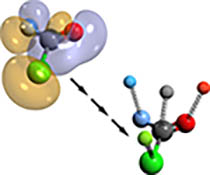 This workshop will focus on three fundamental aspects.
This workshop will focus on three fundamental aspects.
The first one is the rigorous mathematical derivation of reduced models from reference quantum models in some regimes such as the semiclassical limit, adiabatic limit, thermodynamic limit, and high/low density limit. New approaches have been developed in the past two decades, which lead to successful mathematical derivations of reduced models in a number of settings. However, in many settings the mathematical relations between reference and reduced models and the domain of validity of the latter still have to be clarified.
The second aspect is concerned with effective interactions. Interactions between elementary particles typically have very simple functional form such as the Coulomb potential between two charged particles. However, upon solving the many-particle quantum mechanical equations, complex and intricate interactions emerge. The understanding and systematization of such interactions between composite objects provides a pathway to better understand quantum mechanics itself and constitutes the basis for developing coarse-grained approaches to describe interactions in large quantum systems.
The third aspect is about simplified quasiparticle or collective mode descriptions of complicated quantum states, using one-particle spin-orbitals, plasmons, phonons, polarons, or excitons. Such objects are embedded in finite or infinite dimensional Hilbert spaces defined by the basis set utilized to expand the many-body wavefunction. Recently, many interesting efforts have been dedicated to analyzing and visualizing quantum states in Hilbert spaces, as well as to map and embed Hilbert spaces between different quantum systems. Such mapping and embedding of Hilbert spaces brings out novel insights into the intricate nature of quantum fluctuations and should ultimately allow to develop better and more reliable approximations for solving complex quantum systems.
Hybrid Workshop: While this workshop is offered in-person, participants can also register and attend talks virtually. Register here.
This workshop will include a poster session; a request for posters will be sent to registered participants in advance of the workshop.
Eric Cances
(École Nationale des Ponts-et-Chaussées)
Garnet Chan
(California Institute of Technology)
Robert DiStasio
(Cornell University)
Maria J. Esteban
(CNRS and Université Paris-Dauphine)